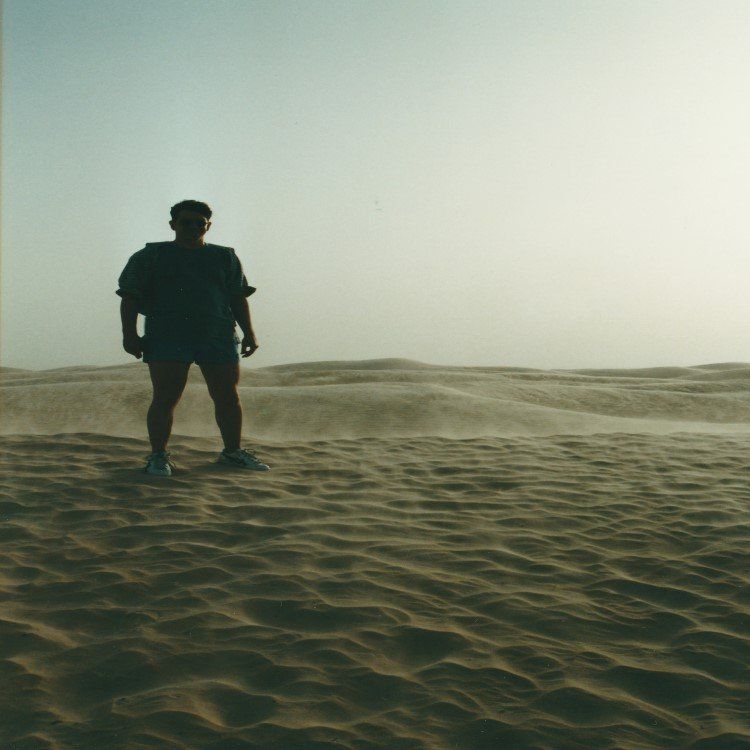The Trouble with Jesus
by Constance Hastings
Holy Doubt
April 5, 2021

Could it be that faith is not actually a fully convinced mindset? Could it be that to truly have faith an element of doubt, perceptions that rest in possibly not as much as possibly so, is necessary? Do faith and doubt exist not as opposites but as integral parts of each other?
The door was locked. The women had told them they’d been to the tomb, but Jesus’ body was not there. Instead, Mary Magdalene ran and found them with her message, “I have seen the Lord!” The disciples gathered, but still they locked the door. Likely, they had doubted her. Mary Magdalene had once been possessed with demons, so the story around her goes. After the trauma of three days ago, it would be easy to think she had relapsed into her old sickness, seeing what was not really there. Doubt was rational.
Rational except when the door of it was blown off. Despite the bolt holding it shut, a locked door was of no consequence when suddenly Jesus in the flesh was among them. “Peace be with you,” he said, showing them his scarred but fully healed hands and side. What had never been done before, what could never be explained with rational proof, had happened. His demise by brutal execution was now secondary to this new life that reversed death and its finality.
Joy doesn’t adequately express what happened to these friends who had hunkered down in fear for their lives. Certainly, they were thrilled to see Jesus alive again. But would they have reacted in ecstasy if they had in the least believed that Jesus would do as he had told them, die and return alive in three days? Instead, their doubt had slammed into their faith.
They weren’t alone. Thomas, one of the original twelve, wasn’t with them that night. When told Jesus was alive, he wouldn’t buy it. Furthermore, he wouldn’t accept just an appearance but declared he had to actually touch Jesus’ hands and sword-pierced side to believe it had happened. No ghost was going to change his mind.
Jesus delivered eight days later. Again, despite locked doors, Jesus appeared to the disciples, this time including Thomas. Like before, Jesus greeted them, “Peace be with you.” Peace: don’t be afraid. Peace: this isn’t like anything else you or the whole world has ever known. Peace: prepare to have all your assumptions and expectations reversed. Peace: lean in, accept what I have done. “Peace be with you.”
He invited Thomas to touch him literally in his points of pain. Jesus knew this was the place where Thomas’ doubt as well as so many others’ questions have had to pause, sort out in mind and soul if this could be. Only by fully accepting Jesus’ death can there be as well an acceptance of resurrection. One won’t have significance without the other. Faith must be linked with doubt for the two to become belief.
Thomas exclaimed, “My Lord and my God!” He was the first to declare the divinity of Jesus Christ, not just as one who is a Savior whose death and resurrection bought a ticket to heaven, but as ruler over all that life may bring to us and all in life that needs reversal, even as we wrestle with our doubts.
Jesus acknowledges to Thomas, “You believe because you have seen me.” But there are those who perhaps have even more of a blessing than a physical revelation. To those who did not know him then and even more so to all the world that will come later, Jesus says, “Blessed are those who have not seen and yet have come to believe.” Blessed are those who have not had the benefit of miracles and heavenly revelation. Miracles help some, but those who “come to believe” without them very likely have the greatest miracle of all, the miracle of a faith that has acknowledged doubt.
Jesus blessed all those -- from Thomas up to now -- who have managed to believe without the benefit of direct experience; all those, that is, who have managed to come to a faith that is not the opposite of doubt but which lives with doubts and yet still finds a way to believe.
It is in the not knowing how God does what God does that faith is centered, stretched and filled. But it usually starts with some honest doubt. Honest doubt leads to honest belief because the journey of faith is just that, a journey where we come to believe.
John 20:19-29

Some things just won’t mix or at least shouldn’t: water and oil, light and dark, ammonia and bleach. One will rise above the other, cancel the other out, or react dangerously to anyone around. Throwing salt into a mix could either add flavor or kill off where it landed. Sometimes, Jesus brought things together that might not be a good idea.

Jesus, what really doesn’t make sense is how you say this on your first big stage. Here you are speaking from a first-century arena, on a mountain with your main guys in front and crowds filling in behind. Son of Man, people are seeing you and thinking this is like Moses bringing down the Big Ten from God’s mountain. They want to know again what God is going to do for them as a nation and in their own lives. And all you have are these platitudes?

There’s the narrative, and then there’s the context of that narrative. Should the writer have been more specific, this message may have been banned and burned before its distribution. Ruling powers control the narrative and won’t allow what makes them look less than the shine on their crowns. Sound familiar?

Here we are, the first full week of a new year, and do we ever need one. Sure, much has happened that we didn’t see coming, but we’re almost too familiar with that now. The thing is, are we willing to accept, buy into, focus on what that means? Will we have influence, impact, or at least be open to any newness of life in the coming months? Or again, will we passively accept what has been without resolution to change?
Life must be positioned for change. Prepare to Pivot.

We never get what we want for Christmas. That’s what we think God should do, and almost always, God never does...In a real way though, this is likely the closest to God’s Christmas we may ever know. If we are still as church mice on Christmas Night, we just might see a strange sight through the frosted windowpanes of our souls. God shows up, not how we want, not bringing us all we want. God’s plan is not to fix everything that is wrong in the world, but to meet all the wrong in the world with Love.

Doubt not only questions but gets the hand ready to turn the knob, determined to walk and slam that door shut...Doubt struggles between the God we want and the Son of God who came asking, “Do you believe this?” The Trouble with Jesus is that to be Savior is not to be rescuer from all that is wrong in the world.

Some things just won’t mix or at least shouldn’t: water and oil, light and dark, ammonia and bleach. One will rise above the other, cancel the other out, or react dangerously to anyone around. Throwing salt into a mix could either add flavor or kill off where it landed. Sometimes, Jesus brought things together that might not be a good idea.

Jesus, what really doesn’t make sense is how you say this on your first big stage. Here you are speaking from a first-century arena, on a mountain with your main guys in front and crowds filling in behind. Son of Man, people are seeing you and thinking this is like Moses bringing down the Big Ten from God’s mountain. They want to know again what God is going to do for them as a nation and in their own lives. And all you have are these platitudes?

There’s the narrative, and then there’s the context of that narrative. Should the writer have been more specific, this message may have been banned and burned before its distribution. Ruling powers control the narrative and won’t allow what makes them look less than the shine on their crowns. Sound familiar?

Here we are, the first full week of a new year, and do we ever need one. Sure, much has happened that we didn’t see coming, but we’re almost too familiar with that now. The thing is, are we willing to accept, buy into, focus on what that means? Will we have influence, impact, or at least be open to any newness of life in the coming months? Or again, will we passively accept what has been without resolution to change?
Life must be positioned for change. Prepare to Pivot.

We never get what we want for Christmas. That’s what we think God should do, and almost always, God never does...In a real way though, this is likely the closest to God’s Christmas we may ever know. If we are still as church mice on Christmas Night, we just might see a strange sight through the frosted windowpanes of our souls. God shows up, not how we want, not bringing us all we want. God’s plan is not to fix everything that is wrong in the world, but to meet all the wrong in the world with Love.

Doubt not only questions but gets the hand ready to turn the knob, determined to walk and slam that door shut...Doubt struggles between the God we want and the Son of God who came asking, “Do you believe this?” The Trouble with Jesus is that to be Savior is not to be rescuer from all that is wrong in the world.


